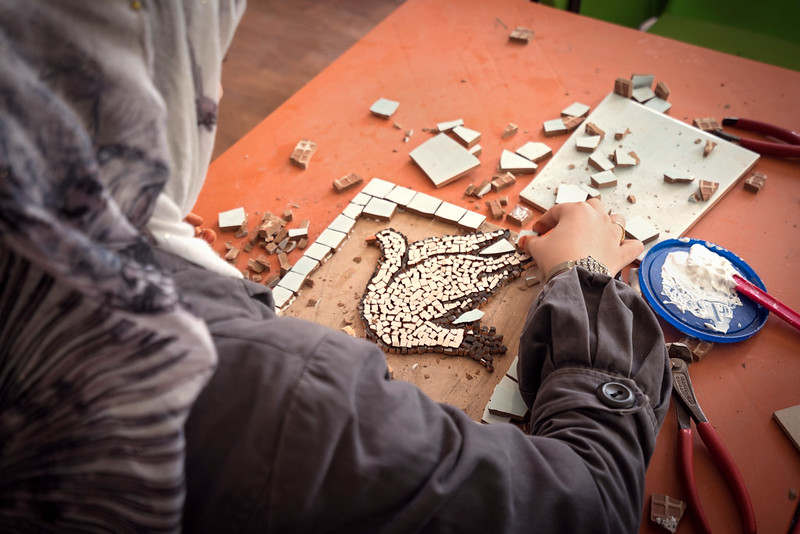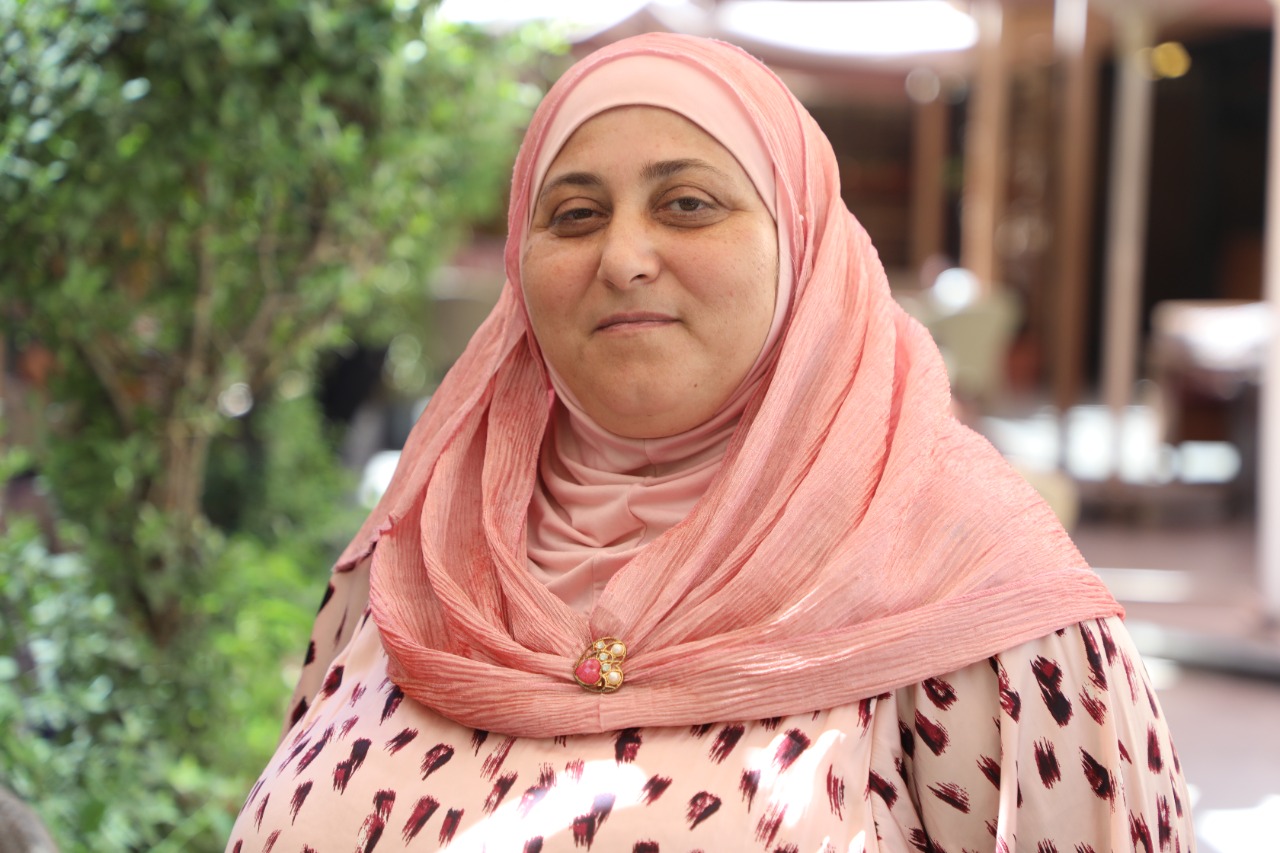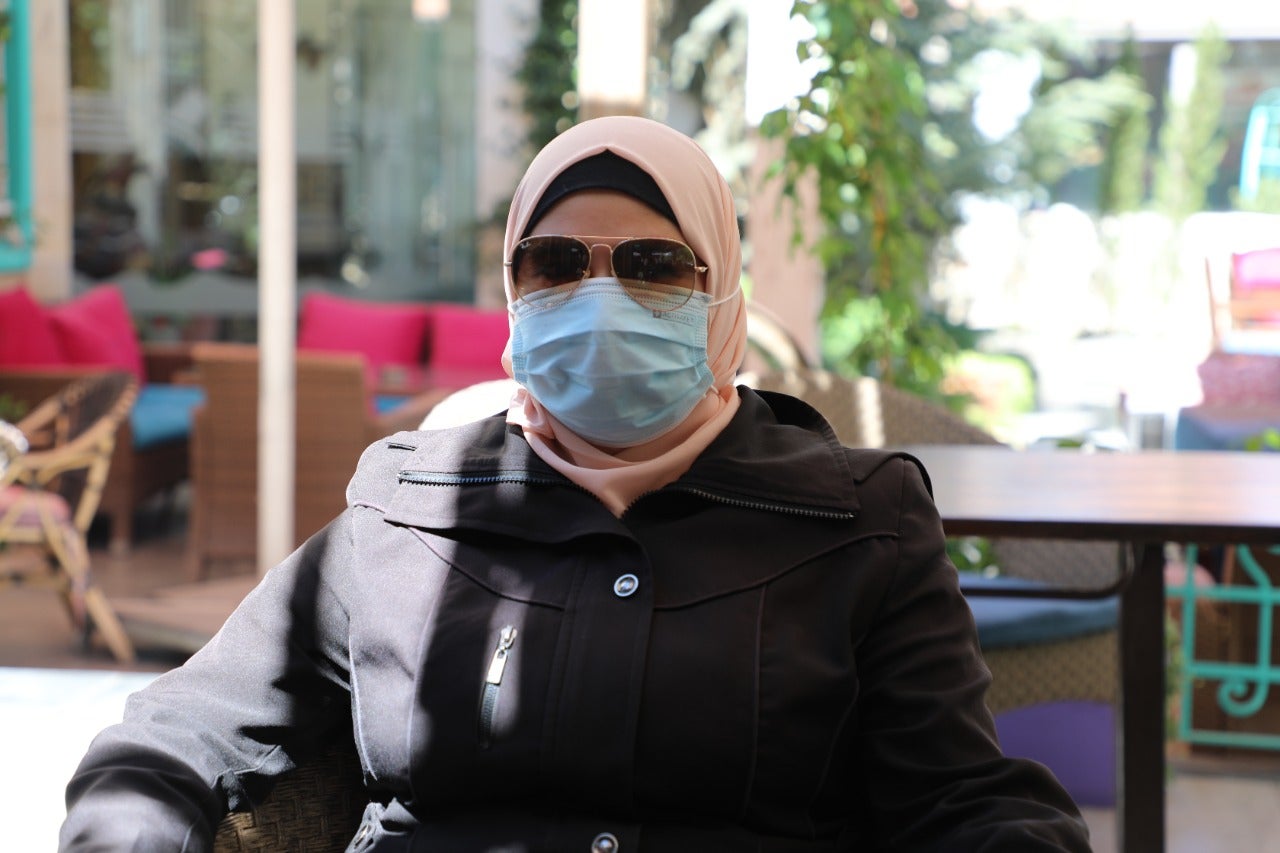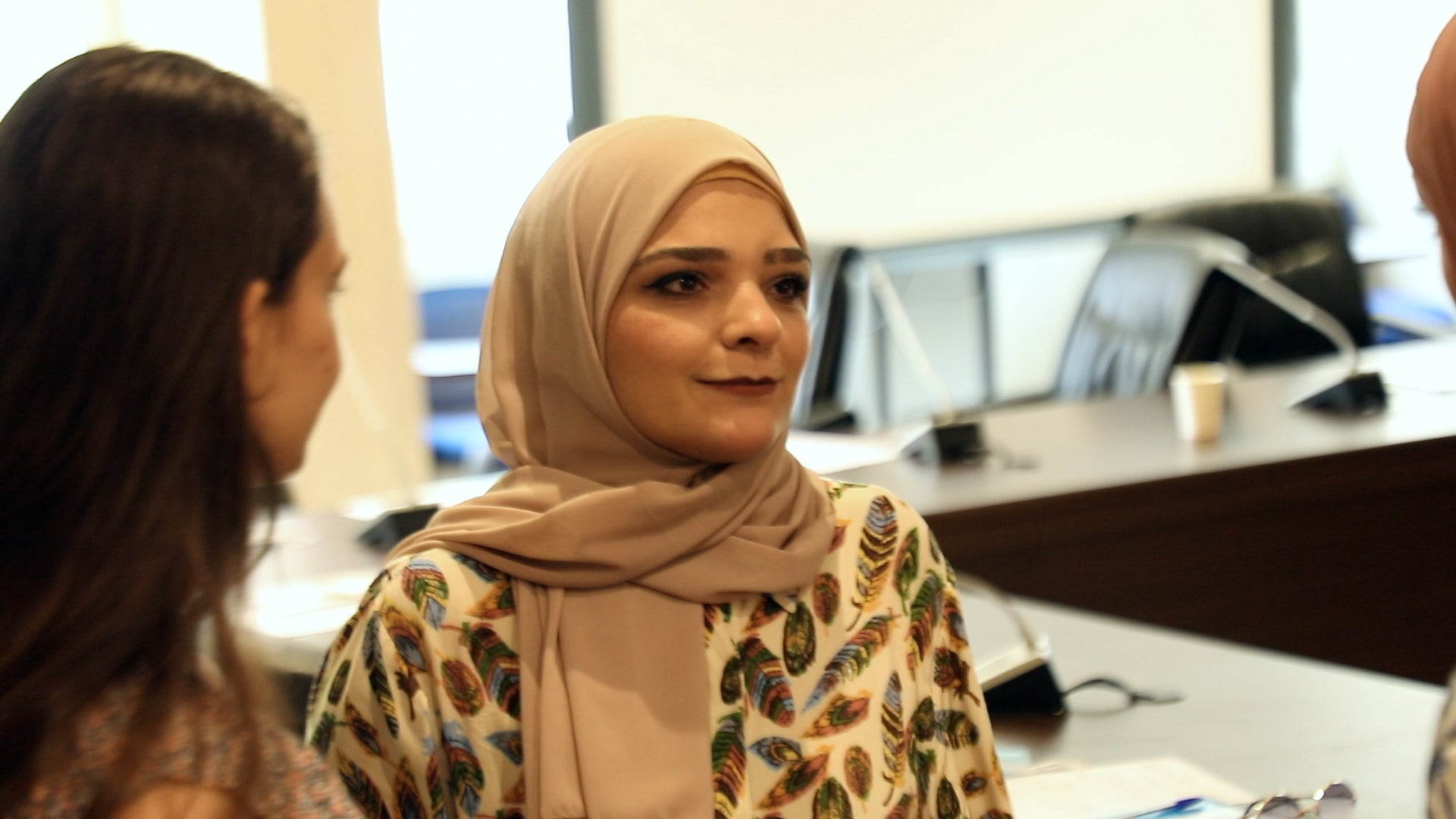Women in Lebanon at the forefront of non-violent conflict resolution through UN Support
Date:

Credit: UN Women/Christopher Herwig. October 4, 2015
Women are essential actors of peacebuilding. Although the efforts of women in building peace often go unnoticed, women across conflict-affected countries in the Arab region have been instrumental in diffusing tensions and mediating conflicts in their own communities (UN Women, 2022).[1]
In Lebanon, women contribute to fulfilling peace in different ways. While Ruba seeks peace through leading a calm and happy life at home, Nada focuses on raising peaceful children who are supportive of women empowerment, and Raneen prioritizes hindering the spread of fake news to sustain a peaceful community.
Ruba, Nada, and Raneen developed their peacebuilding skills through participating in several programmes and projects that UN Lebanon through UN Women and United Nations Development Program (UNDP) implemented in various regions across Lebanon, and today they are prominent peacebuilders in their communities.
Ruba, 51, Baalbek, Lebanon

Credit: Georges Roukoz/UNIC Beirut. September 6, 2022
"Ultimate peace is inner peace," says Ruba, a Lebanese social activist and mother of four from Baalbek, Lebanon. Ruba does her best to lead a calm and stable life at home today despite having had an unstable childhood following her parents’ divorce and living in an area notorious for recurring armed conflicts. She is convinced that as a woman leader in her community, she can promote a culture of peace and non-violent conflict resolution in her community. To support this work, Ruba is participating in, "Creating Space for Women Peacebuilders", a project that promotes peaceful dialogue in local communities with women from the North and the Bekaa.
Through this project, which is implemented by the UN in Lebanon through UN Women and International Alert, she has worked with her peers to develop a detailed plan to engage young people and community groups in promoting civil peace in Baalbek. As part of this plan, she has been visiting decision-makers in the area to bring them on board with her plans, and advocate for peaceful conflict resolution.
Ruba has always been determined to fulfill her ambitions, despite being raised in a conservative environment where she was often told women did not belong outside of the home. She was able to pursue an education in programming and systems analysis, and became the first woman in Baalbek to earn a degree in this field. “I encourage all women to be able to fulfill their ambitions and get rid of fear. I call all women to express themselves and to play an active role in their communities, similar to the important role they play at home.”
Nada, 26, Baalbek, Lebanon

Credit: Georges Roukoz/UNIC Beirut. September 6, 2022
"I feel at peace when I play with my children," Nada (who prefers not to use her real name) says. Nada fled war-torn Syria with her son and husband in 2017 to seek refuge in Baalbek, Lebanon. She experienced terrible things in Syria and had to drop out of university, where she was studying Arabic literature, because of the war.
Despite the sadness she witnessed at a young age, Nada has not given up on life, love, and a willingness to contribute to her community. She is determined to continue her education, to develop her skills and build her knowledge, and has been enrolling in trainings and workshops on different topics and skills. Along with Ruba, Nada enrolled in the UN Women funded work, "Creating Space for Women Peacebuilders,” funded by UN Women, which aims to promote non-violence and peace. She believes this, “is the only way for building a better life for my children."
Through her work on dialogue and active listening with other Lebanese and Syrian women, Nada believes she has become more self-confident to express her opinion among a diverse group. For Nada, bridging the gap between different people and communities is essential for building a peaceful society: “When I listened to the stories of Lebanese women, I realized that their problems and concerns are very similar to mine and that we have a lot of common ground to build a more positive relationship.”
Nada is committed to bringing up her children peacefully. She doesn’t use violence in disciplining them, and teaches them not to use violence to solve their own problems. “I wish for my children to live the peaceful life that I have dreamt of, but never lived,” she says with a smile.
Raneen, 26, Akkar, North Lebanon

Credit: Georges Roukoz/UNIC Beirut. September 6, 2022
As an advocate of peacebuilding, Raneen always yearned to become a source of trustful information in her community. “Since I am a young woman with a physical disability, people did not listen to me, needless to stay trust my competence; but my hard work on fact checking and my determination to study and earn a degree in media built my reputation as a credible source,” she says with pride.
Raneen lives with paralysis in her left arm, but her disability did not hinder her ambition to become a leader in her community through practicing “peace journalism.” As a journalism student, she believes that “it is my duty to produce accurate content that defies the widely spread fake news- responsible for fueling daily conflicts in Lebanon.”
Raneen learned about “peace journalism” when participating in a training by UN Lebanon through the United Nations Development Programme (UNDP) that aimed at raising awareness on the impact of fake news and hate speech on social stability. The training was part of the “Youth to combat fake news and hate speech” process undertaken by UNDP and implemented in partnership with Dawaer NGO with funds from Germany through KFW Development Bank. In addition to the trainings and coaching sessions, Raneen also participated in discussions and interactive theatrical shows in villages and universities across Lebanon.
As a young woman, Raneen feels that she has an additional obligation to lead peaceful conflict resolution in her community and support peaceful initiatives. “Peace cannot be fully established if women are not empowered enough to speak up and lead the process of conflict-resolution.”
[1] For more information, review the “Women's Participation in Local Mediation: Lessons from Iraq, Libya, Syria and Yemen”: https://arabstates.unwomen.org/en/digital-library/publications/2022/06/womens-participation-in-local-mediation-lessons-from-iraq-libya-syria-and-yemen#view.